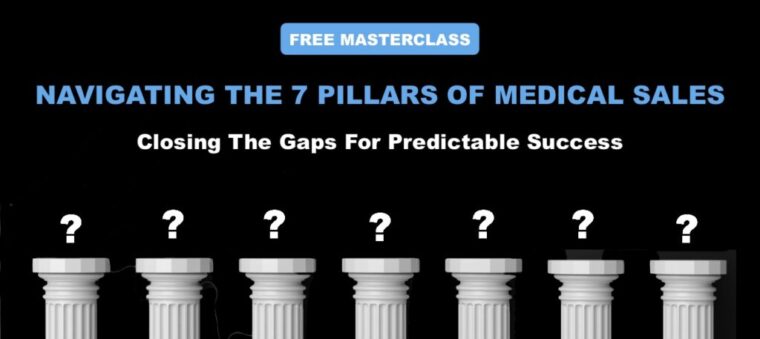Consultative Selling — the term has become cliche…everyone in medical sales knows the term and says it, but the reality is not everyone is doing it! The challenges of selling to healthcare customers can create an environment and mindset where consultative selling is difficult. In this edition of The Medical Sales Guru Podcast, Mace Horoff addresses the main cause of “the gap” and talks about what you need to do to avoid being perceived as just another product-pusher as opposed to a valued link in the chain of patient care.
Podcast: Download (5.6MB)
Subscribe: Apple Podcasts | RSS



Mace,
Excellent advice! The title ‘consultant’ is trite, but the consultative approach is anything but prevalent. I borrowed the concept of “giving gifts” from Seth Godin, but I think you’re describing the same approach.
I’ve created a support group for a chronic illness and it is viewed as an invaluable resource by physicians. Do you have other examples of the consultative approach directed toward patients?
Thanks,
Ben
PS – Great stuff in your new book!
Thanks for your comment Ben. I’ve not specifically considered a consultative approach to patients, but I try to use such an approach when I engage anyone in my life, so taking this approach with patients makes sense. I have gone on doctor visits with some elderly friends lately, and I notice how doctors ask questions. Most employ closed-ended, yes or no type questions, not giving the patient an opportunity to elaborate, e.g., “do you have any pain in your shoulder? Is it a dull pain? Is it an ache? Does it hurt when you put your arms above your head?” All valuable information, but the doctor who asks open-ended questions first, gets the patient’s perspective which may uncover some issues that would not come out with yes or no questions. The other thing, and I think this would be important in a support group environment as well, is when doctors give patients an opportunity to express themselves so that they feel as if someone wants to listen, i.e. someone cares. I try to get people to think and tell me what it is that they want to change, do better, or leave alone. That’s more important than what I think they should do or is best for them because if I tell them, they can argue against my recommendations, but they won’t argue with their own data.
You’re obviously a caring person Ben, and I applaud you for taking the time to help others outside of the work environment.